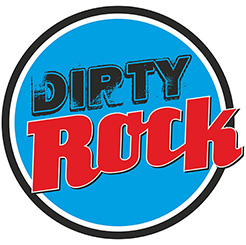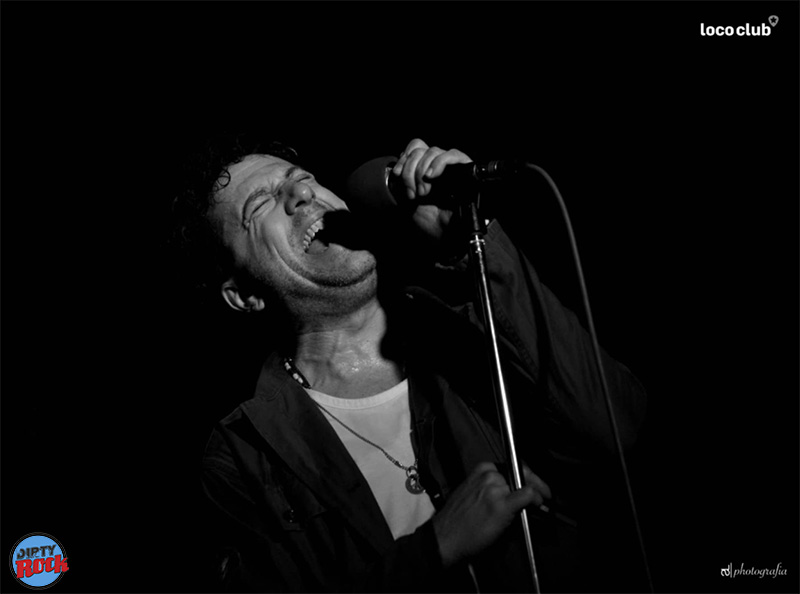El pasado 22 de agosto de 2025 se estrenó Sweet Misery, el decimoquinto álbum de estudio del veterano cantautor de Nashville Will Hoge. Tras más de veinte años explorando diversos matices estilísticos —incluyendo momentos de introspección acústica y lirismo pausado—, este nuevo trabajo marca un regreso vibrante al rock de guitarras y ritmos contundentes. En Sweet Misery, la sensibilidad que siempre ha caracterizado su escritura se funde con una cruda honestidad y una energía renovada, dando como resultado un disco poderoso y emocional.
Charlamos largo y tendido con el músico de Nashville sobre este nuevo disco: desde la génesis de sus canciones hasta cómo afronta el desafío de volver a girar por España en 2026 en este nuevo capítulo de su carrera. Y aunque todavía no hay ciudad ni fecha confirmada, queda claro que será una ocasión especial para reencontrarse con el público ibérico bajo el signo del rock auténtico.
- “Sweet Misery” es tu álbum número 15. ¿Qué te llevó a elegir ese título? ¿De dónde viene la “dulce miseria” que sugieres en él?
Hay una toma de conciencia de que amar verdaderamente a alguien o algo acaba provocando dolor y sufrimiento. Creo que eso se refleja en el álbum en su conjunto y, obviamente, en esa canción en particular. Me gusta la esperanza y la aceptación de la dulzura de las cosas que también pueden provocar cierta incomodidad por el crecimiento y el cambio.
- Este álbum parece que busca capturar la electricidad de una banda tocando en vivo, sin artificios. ¿Cuáles fueron los mayores desafíos al tratar de mantener esa crudeza y autenticidad? ¿Cómo fue conformar la banda para este disco, especialmente teniendo en cuenta que mencionas que “no tenías banda” al comienzo del proceso? ¿Qué buscabas en los músicos con los que trabajaste?
Ese era el objetivo del disco. Justo antes había publicado Tenderhearted Boys, que era muy íntimo, minimalista y en solitario. Luego volví a grabar y reedité mis dos primeros álbumes (Carousel y Blackbird On A Lonely Wire), y eso me dio ganas de volver a hacer un álbum de rock and roll con una banda completa. Empecé algunas de las canciones en el estudio con mis amigos Mark (Masefield), de mi banda y de la banda de Dave Hause, y Eric (Hall), el guitarrista de Red Wanting Blue. Me encantaba la dirección que estaba tomando, pero luego me ocupé con otras cosas. Me estaba preparando para hacer un álbum de Tim Hause llamado Pre Existing Conditions y había reunido a una banda INCREÍBLE, pero entonces Tim y Dave tuvieron que reprogramar las sesiones. Así que me tomé un tiempo, terminé algunas canciones y mantuve esas fechas de sesión y esa banda para hacer este álbum. Estaban mi bajista Christopher Griffiths, Mark en algunos teclados, mantuvimos muchas cosas de Eric de las sesiones originales y luego lo completamos con Nathan Keeterle a la guitarra y Atom Willard a la batería.
“Mi público no es tonto. Saben cómo identificarse con las canciones. Saben cómo ver y encontrar pequeños fragmentos de sus propias historias en las mías. No tienen por qué ser historias 100 % iguales a las suyas, al igual que las mías no siempre son 100 % iguales a las suyas”
- Canciones como Another Planet, Maryanne, Last American Summer o Til It’s Gone resaltan tanto por la fuerza musical como por la emoción. ¿Cuál fue la chispa creativa para esas canciones? ¿Hay historias específicas detrás de ellas?
Another Planet se inspira en ese momento en el que te das cuenta por primera vez de que alguien te quiere de verdad y lo difícil que puede resultar aceptarlo y afrontarlo.
Last American Summer para mí trataba sobre el viaje de ver a mis hijos crecer y cambiar en un mundo que se desmorona lentamente y su comprensión de lo difícil que puede ser eso.
Til It’s Gone es una historia sobre aprender a dejar de lado tus tonterías y tu ego para intentar ser mejor persona, mejor pareja, mejor amigo, etc.
- Esa idea de que la gente escuche el álbum “de principio a fin, como deben escucharse los álbumes”: ¿Qué te motivó a decir eso? ¿Piensas que hoy en día los discos pierden algo al fragmentarse en singles para streaming? ¿Cómo diseñaste Sweet Misery para que tenga coherencia como unidad?
Sigo prefiriendo escuchar música así. No sé si esto le importa al mundo en general en el «negocio de la música», pero yo no estoy en el negocio de la música, estoy en el negocio de Will Hoge y eso sigue siendo muy importante aquí. Está bien tomarse un respiro. Siéntate durante una hora. Escucha un álbum. Lee un libro. Ve a un museo. Disfrutar del arte. Te sentará bien.
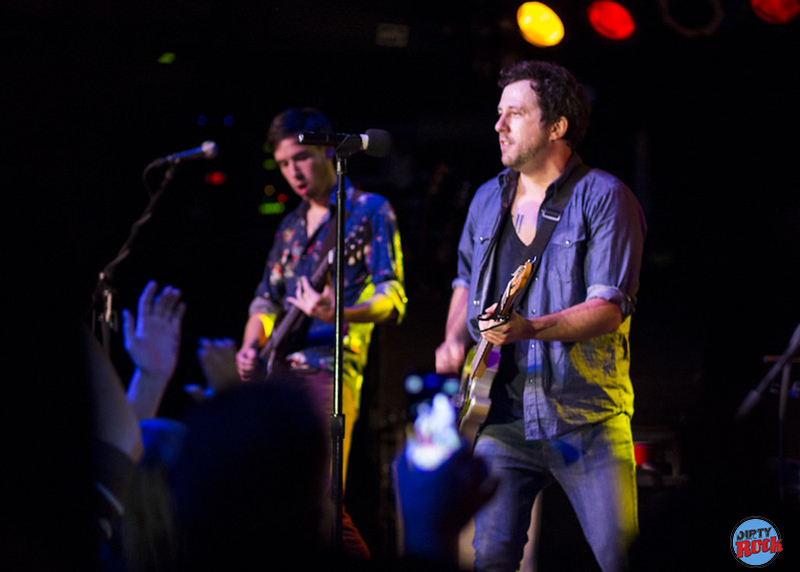
- Después de Tenderhearted Boys, un disco muy introspectivo, ¿Cómo ha sido para ti volver a sonar más rockero, más enérgico, con Sweet Misery? ¿Qué te permitió ese cambio?
Me gusta hacer ambas cosas y me parece algo natural hacer cada una de ellas cuando las canciones lo requieren.
- En el proceso de composición y producción, ¿en qué momento sabes que una canción está lista? ¿Hay algún criterio que utilizas para decidir “esto ya va, lo dejamos así”? ¿Puedes describirnos cómo suele ser el proceso creativo en la composición de una canción y un disco? ¿tienes un método habitual para ello?
No le doy muchas vueltas a ese proceso. Sin duda, edito un poco las letras y la estructura durante el proceso de composición. Intento que todo sea lo más visceral posible. En cuanto al estudio, me gusta trabajar rápido. Creo que la primera vez que se te pone la piel de gallina, sabes que está bien. A menudo, si buscas la «perfección», los resultados pueden ser cada vez peores. Prefiero la sensación a la perfección diez de cada diez veces.
- En tu carrera has sido muy fiel a una visión personal y artística. ¿Hubo presiones externas para hacer algo diferente en Sweet Misery, sea del público, sellos discográficos o tendencias musicales?
No. Esas no son fuerzas ni preocupaciones que hayan tenido mucha influencia sobre mí, y eso es más cierto ahora que nunca.
“Creo que la próxima vez que vayamos a España grabaremos un álbum en directo”
- Tenderhearted Boys se presentó como una obra muy íntima: escrita, producida, tocada por ti mismo, con pocos adornos. ¿Qué aprendiste de esa experiencia? ¿Qué partes de ese método sigues aplicando hoy?
Era la primera vez que trabajaba en mi nuevo estudio. Aprendí MUCHÍSIMO. Sí, un montón de pequeños trucos que poner en práctica. También aprendí más sobre cómo confiar realmente en mi instinto y mis habilidades como intérprete.
- Esa intimidad ¿te cambió como intérprete en directo? ¿Cómo encajan las canciones de Tenderhearted Boys dentro de los conciertos más rockeros que incluirán Sweet Misery?
Ha añadido una gran dinámica al espectáculo en directo. Poder tomar los elementos enormes y ruidosos de la banda al completo y mezclarlos con esas canciones en solitario es realmente genial.
- ¿Los conciertos de esta gira los has pensado como una traslación del sonido de banda que has recogido en el último disco o algo más cercano a la gira de Solo & Live? ¿Puede que tengamos un poco de ambos mundos?
Sin duda, ambas cosas. Esta banda es la más capaz y ágil que he tenido nunca. Podemos abarcar mucho terreno sonoro y cambia cada noche. Las diferentes versiones de las canciones y cosas por el estilo lo hacen realmente interesante.
- Muchas canciones tuyas parecen nacer de momentos personales (vida cotidiana, emociones, reflexión). ¿Cómo gestionas el equilibrio entre lo personal y lo universal, para que el público se identifique sin sentir que invade tu privacidad?
Siento que estoy aprendiendo que, a menudo, lo más personal es lo más universal. Mi público no es tonto. Saben cómo identificarse con las canciones. Saben cómo ver y encontrar pequeños fragmentos de sus propias historias en las mías. No tienen por qué ser historias 100 % iguales a las suyas, al igual que las mías no siempre son 100 % iguales a las suyas.
“Creo que la primera vez que se te pone la piel de gallina cuando compones una canción, sabes que está bien. A menudo, si buscas la «perfección», los resultados pueden ser cada vez peores. Prefiero la sensación a la perfección diez de cada diez veces”
- En pasadas visitas a España actuaste en salas como El Sol en Madrid y Sala Upload en Barcelona. ¿Qué te inspira del público español? ¿Qué esperas que se lleven los asistentes de estos conciertos?
¡El público español tiene una pasión y una fe en el rock n roll que nos da alas a la banda y a mí! Esto sigue siendo importante para vosotros y eso es muy especial. Creo que la próxima vez que vayamos a España grabaremos un álbum en directo.
- ¿Cómo decides el setlist para una gira como ésta donde presentas Sweet Misery, pero también tienes un catálogo largo? ¿Qué canciones son imprescindibles?
Cada noche es diferente. Tenemos una lista de unas 90 canciones con las que estamos trabajando actualmente y siempre estamos añadiendo más. No creo que haya ninguna canción que TENGA que tocar, solo tengo que asegurarme de que todo lo que tocamos sea genial.
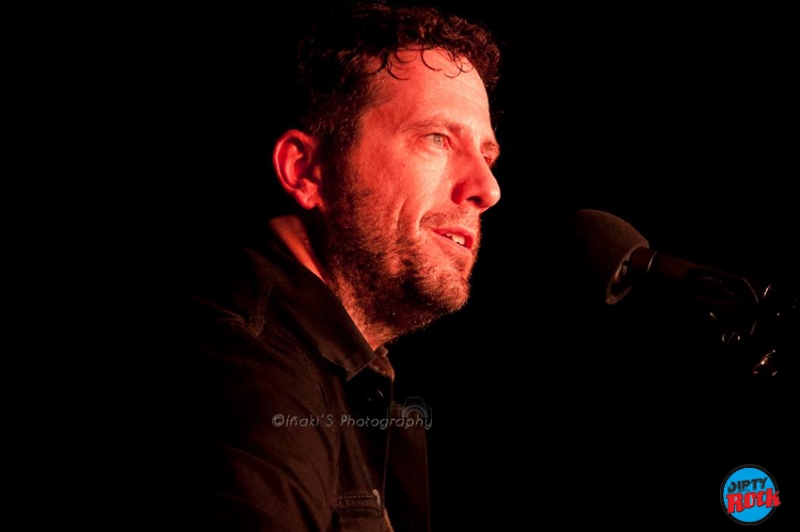
- ¿Qué diferencias hay sobre tocar solo/acústico frente a con banda completa? ¿Qué prefieres tú personalmente y por qué?
Me encanta la intimidad de un concierto en solitario, pero siempre me gustará tocar con una banda de rock and roll.
- ¿Hay alguna ciudad o sala en España que te emocione especialmente visitar esta vez, o que te gustaría que fuera parte de la gira en el futuro?
¡¡¡Todas ellas!!!
- En tus conciertos en España, ¿planeas presentar las canciones nuevas con la misma fuerza de banda completa que el disco, o habrá arreglos distintos? ¿Qué esperas del directo para comunicar esa energía orgánica?
Será una experiencia completa con toda la banda, rock n roll y montaña rusa. Cuéntaselo a tus amigos y no te lo pierdas.
- Muchos artistas dicen que con los años cambia su relación con el error, con lo que no salió perfecto. Tú, ¿Cómo piensas hoy respecto a las imperfecciones en tu música o en el directo? ¿Las ves como parte del encanto?
Es algo en lo que, literalmente, no pienso. Es parte del viaje. No se trata de si la cagas, sino de cómo te recuperas.
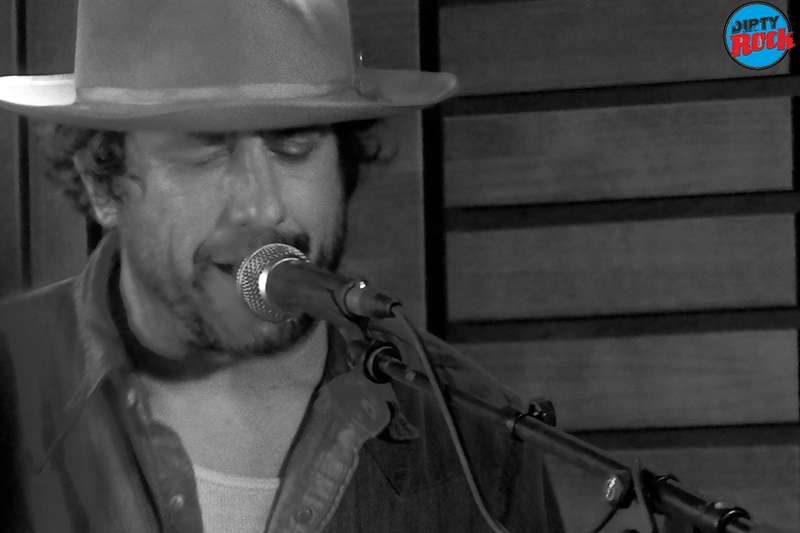
- En estos tiempos en que todo va muy rápido, ¿Cómo mantienes tu honestidad artística? ¿Cómo evitas perder autenticidad entre nuevas tendencias, redes sociales, etc.?
Quiero decir, suena demasiado simple, pero en realidad es que no presto atención a esas cosas.
- ¿Cuál es tu esperanza más grande para Sweet Misery? En términos de lo que quieres comunicar, lo que quieres provocar en la audiencia, lo que quieres dejar como huella.
Espero que emocione a las personas que han sido fans y me han apoyado durante muchos años. También espero que atraiga a gente nueva a los conciertos para que vengan a escucharme.
- 20. Finalmente, ¿Qué viene después de la gira? ¿Algún proyecto, colaboración o idea que te ilusione particularmente?
Tengo un par de proyectos propios en los que estoy trabajando. También estoy terminando un nuevo álbum genial del dúo Molly O’Leary y Justin Arena. Luego, en octubre, terminaré un álbum en solitario para Scott Terry (de Red Wanting Blue). Ambos son discos increíbles que querrás escuchar.
Muchas gracias por tu tiempo y atender a Dirty Rock Magazine, estamos ansiosos por poder verte en directo. Enhorabuena por otro gran disco.
Entrevista realizada por Nacho Cordero. IG @rockyoursoul y Quique Sánchez. IG @quique_geme
Fotos Sergio Lacedonia, Iñaqui Serpico, Javier Naranjo y Carlos Pérez Báez.
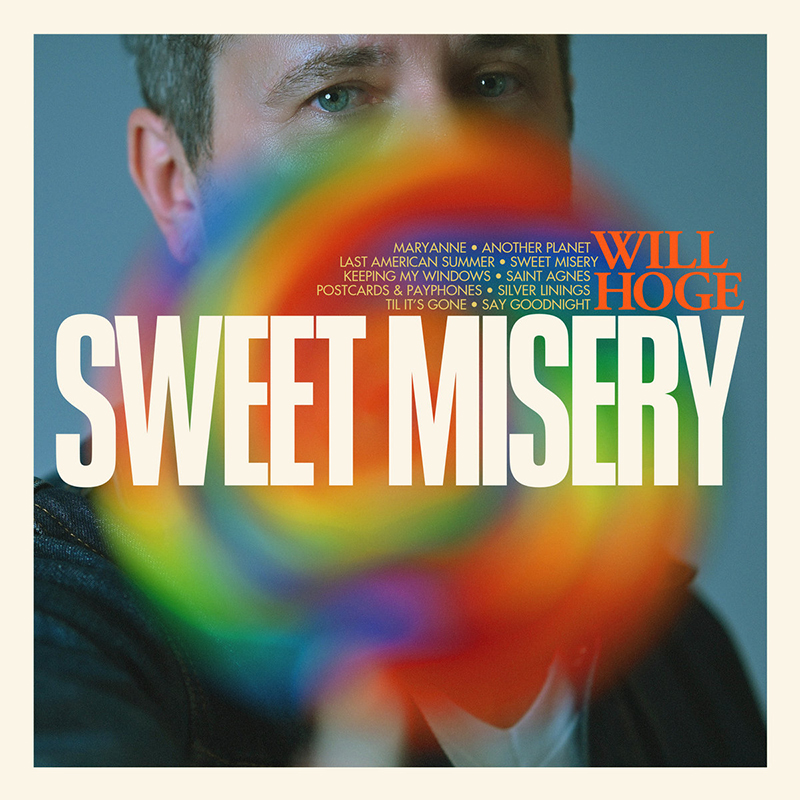
ENGLISH (ORIGINAL)
WILL HOGE
-
-
- Sweet Misery is your 15th album. What led you to choose that title? Where does the “sweet misery” you suggest in it come from?
-
There is a realization that truly loving someone or something eventually leads to some pain and misery. I think that was reflected in the album as a whole and obviously within that track itself. I like the hope and acceptance of the sweetness in things that can also lead to some discomfort from growth and change.
-
-
- This album seems to seek to capture the electricity of a band playing live, without artifice. What were the biggest challenges in trying to maintain that rawness and authenticity? What was it like putting together the band for this album, especially considering that you mention that you “didn’t have a band” at the beginning of the process? What were you looking for in the musicians you worked with?
-
That was the goal with the record. I’d released Tenderhearted Boys just before this and that was so intimate, and stripped down, and solo. Then I’d re recorded and re released my first 2 albums(Carousel and Blackbird On A Lonely Wire) and those got me itching to make a full band rock n roll album again. I had some of the songs started in the studio with my pals Mark (Masefield) from my band and Dave Hause’s band, and Eric (Hall) the guitarist in Red Wanting Blue. I loved the direction it was heading but then I got busy on other stuff. I was gearing up to make a Tim Hause album called Pre Existing Conditions and had assembled this AMAZING band and then Tim and Dave had to reschedule the sessions. So I took some time and finished some songs and just kept those session dates and that band to make this album. It was my bass player Christopher Griffiths, Mark on some keys, we kept lots of Eric’s stuff from the OG sessions, then rounded it out with Nathan Keeterle on guitar and Atom Willard on drums.
-
-
- Songs like Another Planet, Maryanne, Last American Summer, and Til It’s Gone stand out for both their musical strength and emotion. What was the creative spark for those songs? Are there specific stories behind them?
-
Another Planet is inspired by that moment when you realize for the first time that someone truly loves you and how that can be hard to accept and deal with.
Last American Summer for me was all about the journey of watching my kids grow and change in a world that is slowly falling apart and their realization of how hard that can be.
Til It’s Gone is a story about learning to put your own bullshit and ego aside to try and be a better human, better partner, better friend, etc.
-
-
- The idea that people should listen to the album “from start to finish, as albums should be listened to”: what motivated you to say that? Do you think that albums today lose something by being fragmented into singles for streaming? How did you design Sweet Misery to be coherent as a unit?
-
That’s still how I like to listen to music. I don’t know if it matters to the world at large in the “music business” but I’m not in the music business, I’m in the Will Hoge business and that still matters a bunch here. It’s ok to slow down. Sit for an hour. Listen to an album. Read a book. Go to a museum. Enjoy art. You’ll be better for it.
-
-
- After Tenderhearted Boys, a very introspective album, what has it been like for you to return to a more rock-oriented, energetic sound with Sweet Misery? What allowed you to make that change?
-
I like to do both of those things and it feels like a natural progression to do each of them when the songs call for it.
-
-
- In the songwriting and production process, at what point do you know a song is ready? Is there a criterion you use to decide “this is good enough, let’s leave it at that”? Can you describe what the creative process is usually like when composing a song and an album? Do you have a usual method for this?
-
I don’t overthink that process. I definitely do some editing with lyrics and structure in the writing process. Try and make things as visceral as possible. As for the studio, I like to work fast. I think that the first time you start getting goosebumps you know it’s right. It can often be diminishing returns after that if you search for “perfect”. I’ll take feel over perfection 10 times out of 10.
-
-
- Throughout your career, you have been very faithful to your personal and artistic vision. Was there any external pressure to do something different on Sweet Misery, whether from the public, record labels, or musical trends?
-
No. Those aren’t forces or concerns that have ever held much sway over me and that’s more true now than ever before.
-
-
- Tenderhearted Boys was presented as a very intimate work: written, produced, and played by yourself, with few embellishments. What did you learn from that experience? What parts of that method do you still apply today?
-
That was the first time working in my new studio. I learned SO MUCH. Yeah lots of little tricks to carry forward. Also learned more about really trusting my instincts and abilities as a player.
-
-
- Did that intimacy change you as a live performer? How do the songs from Tenderhearted Boys fit into the more rock-oriented concerts that Sweet Misery will include?
-
It’s added a great dynamic to the live show. Being able to take the huge, loud full band elements and mix those solo songs in with them is really great.
-
-
- Have you thought of the concerts on this tour as a translation of the band sound you have captured on the latest album, or something closer to the Solo & Live tour? Maybe we’ll get a little bit of both worlds?
-
It’s definitely both. This current band is the most capable and agile band I’ve had. We can cover so much ground sonically and it changes every night. Different versions of songs and things like that are really making it interesting.
-
-
- Many of your songs seem to be born out of personal moments (everyday life, emotions, reflection). How do you manage the balance between the personal and the universal, so that the audience can identify with you without feeling that they are invading your privacy?
-
I feel like I’m learning that often times more personal is more universal. I don’t have an audience that is stupid. They can figure out how to put themselves into songs. How to see and find little bits of their own stories in mine. They don’t have to be 100% their story the same as they’re not always 100% mine.
-
-
- On past visits to Spain, you performed at venues such as El Sol in Madrid and Sala Upload in Barcelona. What inspires you about Spanish audiences? What do you hope concertgoers will take away from these shows?
-
There is a passion and belief in rock n roll that the Spanish audiences have that the band and I just thrive on! This shit still matters to y’all and that is so special. I think we’re going to make a live album in Spain next time we’re there.
-
-
- How do you decide on the setlist for a tour like this one, where you’re presenting Sweet Misery, but you also have a long catalog? Which songs are essential?
-
It’s different every night. We have a listen of about 90 songs we’re currently working through and we’re always adding more. I don’t think there are any songs I HAVE to play I just have to make sure whatever we play is great.
-
-
- What are the differences between playing solo/acoustic and with a full band? Which do you personally prefer and why?
-
I love the intimacy of a solo show but I’ll always love playing with a rock n roll band.
-
-
- Is there a city or venue in Spain that you are particularly excited to visit this time, or that you would like to be part of the tour in the future?
-
All of them!!!
-
-
- At your concerts in Spain, do you plan to present the new songs with the same full band force as on the album, or will there be different arrangements? What do you expect from the live show to communicate that organic energy?
-
it will be a full band, rock n roll, roller coaster experience. Tell your friends and don’t miss it.
-
-
- Many artists say that over the years their relationship with mistakes, with what didn’t turn out perfectly, has changed. How do you feel today about imperfections in your music or in your live performances? Do you see them as part of the charm?
-
It’s something l literally don’t think about. It’s part of the ride. It’s not if you fuck up, it’s how you recover.
-
-
- In these fast-paced times, how do you maintain your artistic honesty? How do you avoid losing authenticity amid new trends, social media, etc.?
-
I mean it sounds too simple but in reality I just don’t pay any attention to those things.
-
-
- What is your greatest hope for Sweet Misery? In terms of what you want to communicate, what you want to provoke in the audience, what you want to leave as a mark.
-
I hope it will excite people who have been a fan and supported me for many years. I also hope it will get some new people to come to a show and listen also.
-
-
- Finally, what comes after the tour? Any projects, collaborations, or ideas that you’re particularly excited about?
-
I’ve got a couple of other of my own projects I’m working on. I’m also just finishing a great new album by a duo Molly O’Leary and Justin Arena. Then I’m finishing a solo album for Scott Terry(from Red Wanting Blue) in October. Both of those are KILLER records you’ll want to hear.
Thank you very much for your time and for talking to Dirty Rock Magazine., we can’t wait to see you live. Congratulations on another great album.
